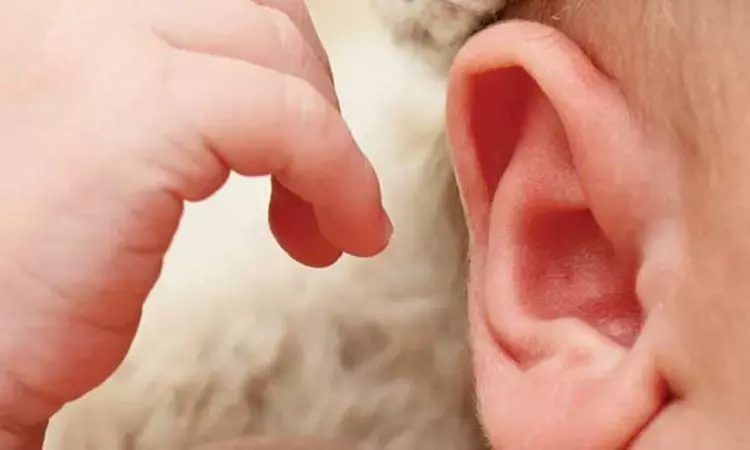- Home
- Medical news & Guidelines
- Anesthesiology
- Cardiology and CTVS
- Critical Care
- Dentistry
- Dermatology
- Diabetes and Endocrinology
- ENT
- Gastroenterology
- Medicine
- Nephrology
- Neurology
- Obstretics-Gynaecology
- Oncology
- Ophthalmology
- Orthopaedics
- Pediatrics-Neonatology
- Psychiatry
- Pulmonology
- Radiology
- Surgery
- Urology
- Laboratory Medicine
- Diet
- Nursing
- Paramedical
- Physiotherapy
- Health news
- Fact Check
- Bone Health Fact Check
- Brain Health Fact Check
- Cancer Related Fact Check
- Child Care Fact Check
- Dental and oral health fact check
- Diabetes and metabolic health fact check
- Diet and Nutrition Fact Check
- Eye and ENT Care Fact Check
- Fitness fact check
- Gut health fact check
- Heart health fact check
- Kidney health fact check
- Medical education fact check
- Men's health fact check
- Respiratory fact check
- Skin and hair care fact check
- Vaccine and Immunization fact check
- Women's health fact check
- AYUSH
- State News
- Andaman and Nicobar Islands
- Andhra Pradesh
- Arunachal Pradesh
- Assam
- Bihar
- Chandigarh
- Chattisgarh
- Dadra and Nagar Haveli
- Daman and Diu
- Delhi
- Goa
- Gujarat
- Haryana
- Himachal Pradesh
- Jammu & Kashmir
- Jharkhand
- Karnataka
- Kerala
- Ladakh
- Lakshadweep
- Madhya Pradesh
- Maharashtra
- Manipur
- Meghalaya
- Mizoram
- Nagaland
- Odisha
- Puducherry
- Punjab
- Rajasthan
- Sikkim
- Tamil Nadu
- Telangana
- Tripura
- Uttar Pradesh
- Uttrakhand
- West Bengal
- Medical Education
- Industry
Amoxicillin Remains Effective for Treating Acute Otitis Media in Children

Acute otitis media (AOM) is a common childhood ailment often treated with antibiotics, particularly amoxicillin. However, the rise of bacteria producing beta-lactamase, which can render amoxicillin ineffective, has raised concerns about treatment efficacy. AOM is a leading reason for antibiotic prescriptions in children. Beta-lactamase-producing bacteria have become more prevalent and may impact treatment success with amoxicillin, the standard treatment for AOM.
This study was published in the Journal Of The Pediatric Infectious Diseases Society by Holly M Frost and colleagues. This study aimed to evaluate the clinical outcomes of children treated with amoxicillin for AOM and assess whether outcomes vary based on the infecting pathogen or beta-lactamase production.
The study included 205 children aged 6-35 months diagnosed with AOM and prescribed amoxicillin. Bacterial culture and RT-PCR were performed on nasopharyngeal swabs, and parents completed surveys on symptoms, antibiotic adherence, and adverse events. Treatment failure with amoxicillin was the primary outcome, with secondary outcomes including recurrence, symptom improvement, resolution, and adverse events.
The key findings of the study were:
In a study involving 205 children diagnosed with acute otitis media (AOM) and treated with amoxicillin, researchers found that treatment failure with the antibiotic occurred in 5.4% of cases.
Recurrence of AOM was observed in 6.8% of children.
By the fifth day of treatment, 74.1% of participants experienced symptom improvement, while 47.3% achieved symptom resolution.
Adverse drug events were reported by parents for 27.3% of children.
Common bacterial otopathogens identified included M. catarrhalis (53.0%), S. pneumoniae (34.2%), H. influenzae (20.1%), and S. aureus (14.1%).
Interestingly, among children who had not previously received amoxicillin treatment, 65.8% tested positive for beta-lactamase-producing bacteria.
However, treatment failure rates did not differ significantly between children with and without beta-lactamase-producing otopathogens.
Despite concerns about the increasing prevalence of beta-lactamase-producing bacteria, this study found that treatment failure with amoxicillin for AOM in children was uncommon and did not vary based on the infecting pathogen or beta-lactamase production. These findings support current guidance recommending amoxicillin as the preferred treatment for AOM in children, highlighting its continued efficacy in the face of evolving bacterial resistance patterns.
Reference:
Dr Riya Dave has completed dentistry from Gujarat University in 2022. She is a dentist and accomplished medical and scientific writer known for her commitment to bridging the gap between clinical expertise and accessible healthcare information. She has been actively involved in writing blogs related to health and wellness.
Dr Kamal Kant Kohli-MBBS, DTCD- a chest specialist with more than 30 years of practice and a flair for writing clinical articles, Dr Kamal Kant Kohli joined Medical Dialogues as a Chief Editor of Medical News. Besides writing articles, as an editor, he proofreads and verifies all the medical content published on Medical Dialogues including those coming from journals, studies,medical conferences,guidelines etc. Email: drkohli@medicaldialogues.in. Contact no. 011-43720751


